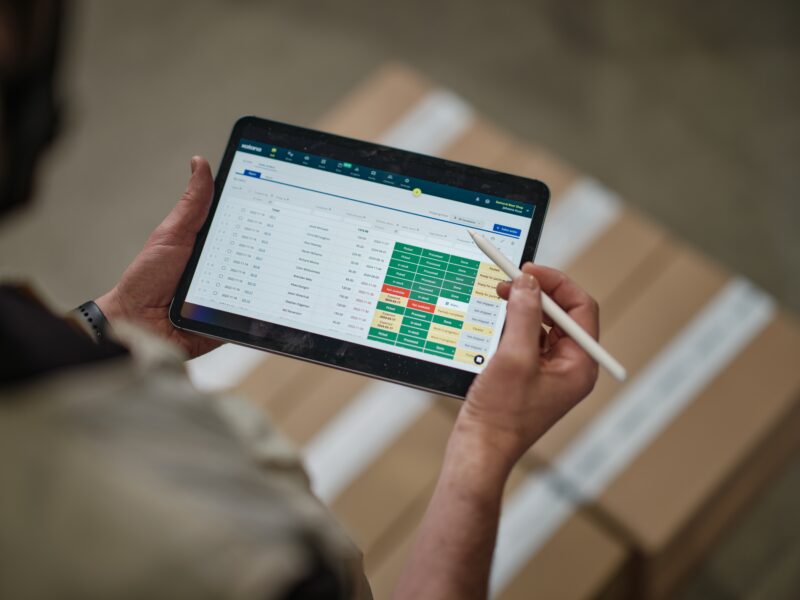How AI is revolutionizing accounting
AI in accounting automates routine tasks, boosts efficiency, and enables accountants to focus on strategic insights, supporting better decision-making and compliance.

Henry Kivimaa

Chances are that if you’ve been on the internet or skimmed through more archaic forms of media like newspapers within the last year, you’ve come across articles about artificial intelligence (AI). Perhaps you read how AI steals jobs, how it creates beautiful poetry, or, in the case of Google’s Gemini, how it recommends including at least one small rock a day in a healthy diet.
The reality is that AI is here to stay. We have to admit that its rapid spread often seems driven more by a fear of missing the hype train than by a genuine desire to improve existing systems. However, there are still many applications providing real-world value. Today, we’ll look into one of such areas — accounting.
So, let’s move along and see the benefits AI can provide accountants today.
Automation of routine tasks
One of the most significant impacts of AI in accounting is the automation of tedious, time-consuming tasks. Bookkeeping, data entry, and transaction categorization are essential functions but often eat up a large portion of an accountant’s day. Below you’ll find examples of how AI can help accountants by taking care of such tasks.
Streamlining bookkeeping
AI-powered software can now handle much of the grunt work involved in bookkeeping. This shift reduces errors, speeds up workflows, and frees accountants to focus on higher-value work. Some examples include:
- Automatic data entry — Tools equipped with AI can extract data from receipts, invoices, and financial documents, adding it directly into accounting software.
- Transaction categorization — Machine learning (ML) algorithms learn from past data to accurately categorize new transactions, which greatly reduces errors and speeds up the process.
- Receipt and bill capture — Converting unstructured data from receipts, bills, and similar documents, interpreting the information, and analyzing money inflows and outflows.
For example, QuickBooks Online does just that. It uses AI to automate transaction matching and categorization and captures data from receipts and bills. It also learns from the users’ actions, improving over time and reducing the need for manual corrections.
Freeing up time for more valuable work
AI frees up accountants to tackle more strategic tasks, like financial analysis and advisory services, by automating routine work. This shift lets accountants focus on areas where they can create a bigger impact.
- Financial analysis — With more time on their hands, accountants can dive deeper into financial data to provide insights that can drive business growth.
- Advisory services — Accountants can offer more value to clients or their organizations by advising on tax planning, investment strategies, and financial forecasting.
Integrating AI into existing accounting processes helps companies enhance efficiency without overhauling their entire system.
It’s worth noting that the integration of AI into routine accounting tasks is not about replacing accountants but empowering them. Spending less time on mundane tasks lets accountants focus on complex problem-solving and provide greater value for their company and clients.

Improved decision-making through AI-powered insights
Beyond automating repetitive tasks, AI also plays a pivotal role in helping accountants and finance teams make smarter decisions. AI can analyze vast amounts of data, identify trends, forecast outcomes, and offer actionable insights that are otherwise time-consuming to generate.
AI in inventory and sales prioritization
AI can also play a big role in inventory management. It enables businesses to optimize stock levels, prioritize orders, and respond faster to demand changes. Analyzing large amounts of data in real time helps ensure that inventory levels align with business needs, reducing waste and streamlining order fulfillment.
Katana Artificial Intelligence, KAI, does exactly that. KAI can analyze large amounts of data, helping you optimize inventory management and sales order prioritization. KAI can analyze open orders, identify bottlenecks, and highlight high-value sales orders that require immediate attention.
For instance, KAI can scan through sales orders and suggest the most urgent tasks based on order value, inventory levels, and production status. This reduces the need for constant human oversight and speeds up the fulfillment process, which can be a game-changer for businesses dealing with large volumes of data or complex operations.
Want to incorporate AI into your business?
Rainar, a Product Manager and an AI enthusiast from Katana, discusses how AI impacts businesses and how it can be implemented to improve manufacturing operations.

Actionable insights for strategic growth
This kind of decision-making power is not limited to inventory. AI’s ability to analyze financial performance data in real time allows accountants and business owners to:
- Identify profit margins — AI can assess which products or services are the most profitable and where the business can improve cost efficiency.
- Optimize cash flow — By forecasting cash flow trends based on historical data and upcoming orders, AI helps businesses make informed decisions about when to invest or save.
These insights enable accounting professionals to become more proactive, shifting from reactive tasks like error correction and reconciliation to strategic advisory roles that support business growth.
AI in audit and compliance
Finally, we can’t overlook auditing and compliance. Traditionally, auditing required a time-consuming review of financial records to identify discrepancies, errors, or potential fraud. AI significantly streamlines this process by analyzing vast amounts of data quickly and accurately. AI-powered auditing tools can:
- Identify anomalies — AI systems can spot irregularities in financial transactions that may go unnoticed by human auditors, such as unusual patterns or outliers.
- Ensure compliance — With ever-evolving tax laws and regulatory requirements, staying compliant can be a challenge. AI tools can automatically track regulatory changes and make sure financial reports adhere to these standards.
- Reduce audit risks — By analyzing data in real time, AI helps prevent issues before they escalate, lowering the risk of penalties and ensuring that financial practices remain transparent.
This not only reduces the workload for auditors but also enhances financial accuracy and compliance across the board, helping companies avoid costly errors and remain in good standing with regulatory bodies.
HubSpot partner looking to expand your value offering?
Provide your clients with an end-to-end inventory solution that integrates seamlessly with HubSpot.
Next steps towards AI in accounting
Whether you’re enthusiastic or skeptical about AI, its growing influence is undeniable. The best approach is to stay informed and consider how it can improve your processes without overcommitting. Start with automating tedious, low-risk tasks that can still be reviewed by employees, like bill imports and transaction categorization.
Keep in mind that AI isn’t infallible, it can sometimes produce errors or unexpected results. Implementing it in areas where employees can review the outcomes minimizes risks. Starting small and gradually integrating AI into your workflow enables you to adapt and expand its use thoughtfully, maximizing its potential benefits.
To see Katana and its AI assistant in action, request a demo now.

Henry Kivimaa
Table of contents
Get inventory trends, news, and tips every month
Get visibility over your sales and stock
Wave goodbye to uncertainty with Katana Cloud Inventory — AI-powered for total inventory control